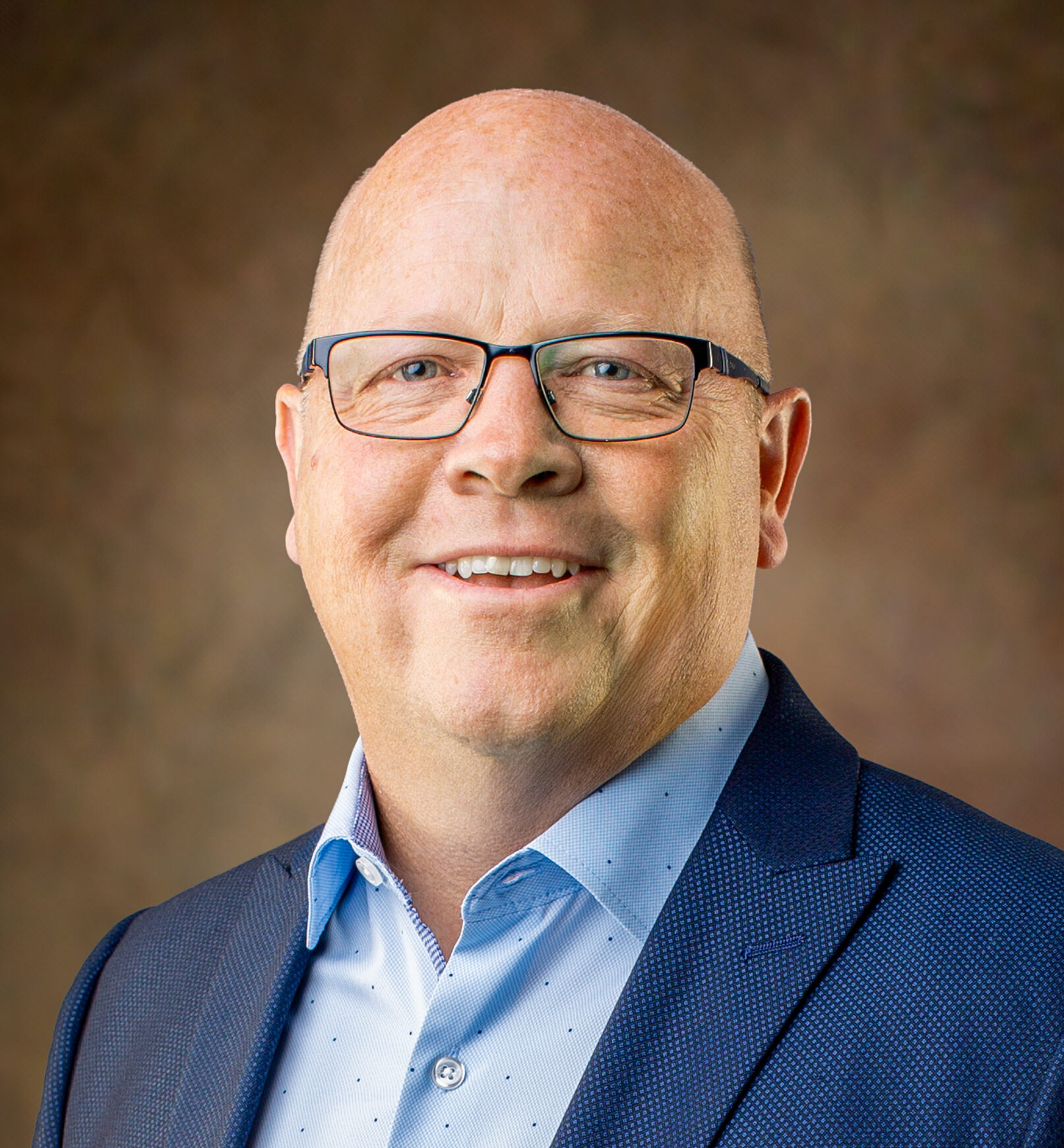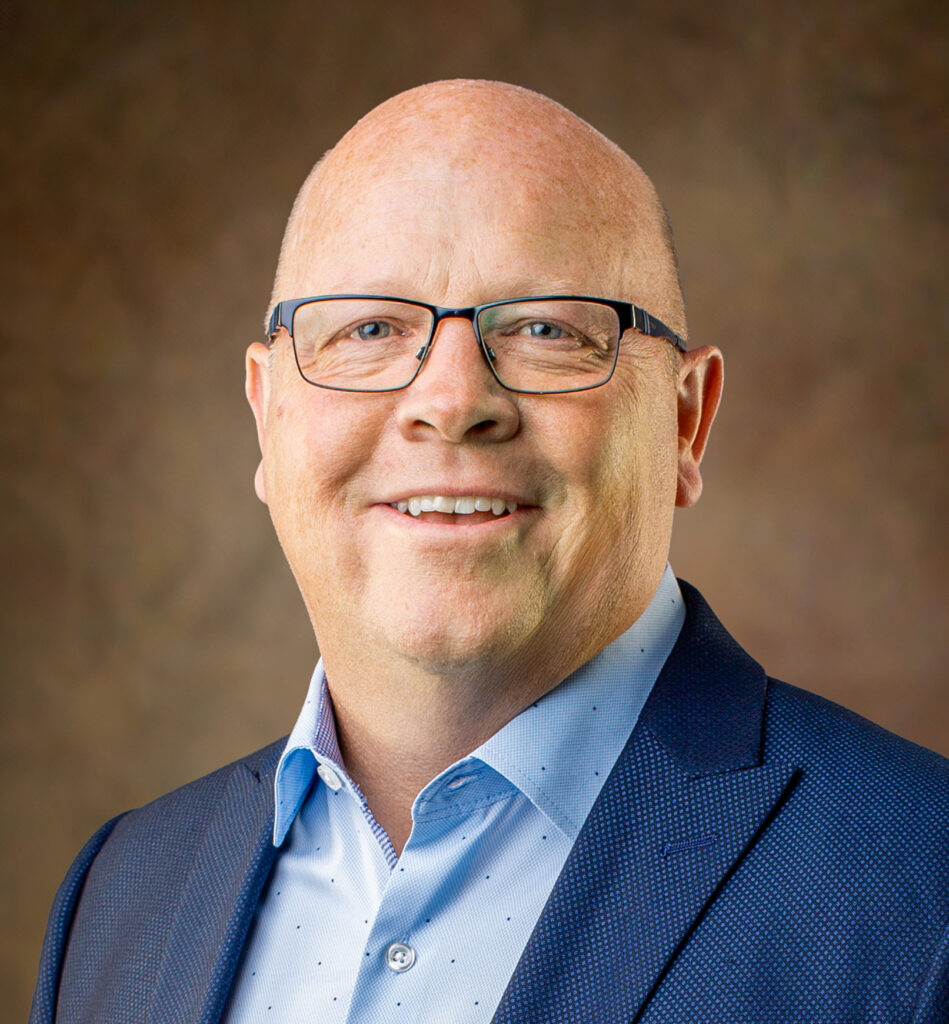President's Perspective
Less Than Human?
Published
5 years agoon

By Randall A. Bach
Approximately six million people were annihilated during the Holocaust, a deliberate and planned execution of Jews and other enemies of the Nazis. Today, there is a Holocaust museum in Israel, Yad Vashem, that houses a heart-rending exhibit that honors the men, women, and children who were victims of the Holocaust. I have been there; the experience is sobering. The Holocaust Memorial Museum in Washington, D.C. is also worthy of a visit. Viewing the pictures, videos, stories, and artifacts of families whose lives were exterminated with the effectiveness of a slaughterhouse is a painfully emotional experience. I have walked into a room at the Dachau concentration camp, outside Munich, Germany, that victims were told was a shower room. However, instead of receiving a shower upon entry, victims were gassed to death. I peered into the ovens at Dachau where factory-like cremations of victims took place around the clock, belching black smoke and human ashes into the sky.
My mind struggled to come to terms with how human beings could be so heartless and calculating as those mass murderers. How could anyone, and especially an entire set of a nation’s leaders, possibly become so demented and depraved, apparently devoid of moral conflict? The perpetrators convinced themselves that their victims were something less than human beings. Nazis considered Jews to be expendable like vermin. If people could convince themselves that some human beings were not actually human, then extermination was but a matter of determining mass efficiency to carry out the act. Once that distortion was established then no evil act was considered too heinous. The term for murder on that scale against a people group is genocide.
In one hundred nations over one century one billion babies have been aborted.i
I was stunned when I read that statement. How could this possibly be? One billion? The six million people exterminated in the Holocaust are but 0.6 percent of 1 billion. Mind boggling! Sadly, the genocide of abortion is that much greater in scale than the Holocaust. There may be people who object to the comparison. Frankly, I recoil at doing so until I consider how aborted babies’ lives are calculatedly terminated by hideously painful and tortuous procedures. The Holocaust was engineered by people in Nazi garb and inspired by a maniacal leader whereas abortions are administered by people in medical garb with the permission of often desperate mothers-to-be. The mission of the Holocaust was the mass extermination of an entire ethnicity whereas abortions are individually applied. However, in New York City, more black babies are aborted than are born alive (WSJ, July 18, 2018), indicating a disproportionate ethnic impact. The Holocaust defied international norms and is widely condemned as genocide whereas abortion is widely viewed as a necessity for the health, betterment, and well-being of a mother-to-be. In that view, the health, betterment, and well-being of the unborn infant is not worthy of consideration.
Abortions hold this in common with the Holocaust: Abortion advocates and providers convince themselves that their victims are something less than human. To an abortionist, fetal tissue becomes a baby, a human being, only when “we” say so and because it is wanted. If the fetal tissue is not wanted, is inconvenient, or deemed unacceptable for some other reason it can be dismembered while alive in the womb. Or as is increasingly finding acceptance, the infant can be terminated at birth, a practice which has historically been considered infanticide. How could we descend to such depravity, to legitimize the termination of innocent life, and on a scale that qualifies as genocide?
I believe it is important that we approach the matter of abortion on at least three levels: First, to vigorously oppose policies and laws that legitimize abortion as a practice and to help the public realize what a grisly and dehumanizing approach it is to “family planning.” Second, we need to extend compassionate love to women who have undergone abortion. According to Focus on the Family: Professional counselors tell us that many women who have had an abortion are not able to
- process the painful thoughts and emotions—especially guilt, anger and grief – that arise from an abortion experience.
- identify, much less grieve, their loss.
- come to peace with God, themselves and others involved in the pregnancy and abortion decision.2
Third, we need to make sure women who are considering abortion know there are alternatives. Jessica Francavilla underwent three abortions before experiencing new life in Christ. Jessica vulnerably shared as my guest on a Better Roads podcast about the guilt and pain from her choices and about the wonderfully redemptive forgiveness of God. “I know now, but I did not know then. I know about the long-term effects of abortion,” she states.
Jessica lovingly and gently speaks to every woman who has had or is contemplating having an abortion. She had opportunity to speak on the steps of the United States Supreme Court about the realities and effects of abortion on women and families. She identifies with women who feel forced to have an abortion because it seems like there is no other option. When she was deciding what to do with her pregnancies, Jessica was aware only of Planned Parenthood as an agency to “help” her. She did not know about the availability of crisis pregnancy centers.
“You are not alone in your fears and guilt,” Jessica shares with women who are considering abortion. “It is a lifelong decision. Circumstances are temporary, but this type of decision does not leave you.” And to women who have had an abortion she says, “There is grace and forgiveness for you.”
In Proverbs we are instructed to “speak up for those who cannot speak for themselves; ensure justice for those being crushed” (31:8-9, NLT). One person reported that during the Holocaust, people attending church services would sing hymns at the top of their lungs in an attempt to stifle the sound of cries coming from passing trains that were carrying Jews to their death. If we turn away from the abortion issue, are we any better than those worshipers? Whether or not we can hear a baby cry in her mother’s womb, that child’s pain and her death are just as real, and just as sad.
i Abortion Worldwide Report (2018)
2Reisser, Teri and Paul. “Dealing with the Trauma of a Past Abortion.” Focus on the Family, December 16, 2016, focusonthefamily.com/pro-life/dealing-with-the-trauma-of-a-past-abortion/
President's Perspective
Living A Sent Life: Seeing and Meeting the Needs Around Us
Published
4 months agoon
February 27, 2025
“. . .As the Father has sent me, so I am sending you” (John 20:21 NLT).
In this issue of Message of the Open Bible you will discover some wonderful stories of how God is using everyday people to touch and transform lives and communities. You’ll read how people are opening their eyes and hearts to show and share the love of Jesus by “living sent.”
In my early years of ministry, I heard a phrase from well-known pastor Tommy Barnett that I have never forgotten. He defined ministry simply yet profoundly: “Ministry is seeing a need and meeting it.”

While this may be a simplistic approach, it has stuck with me, perhaps because it encapsulates much of what we see Jesus doing in His ministry. The scriptures tell us that “Jesus went around doing good and healing all who were oppressed by the devil” (Acts 10:38), and how He came “not to be served but to serve others and to give his life as a ransom for many” (Mark 10:45).
Barnett’s quote also helps us see ministry as more relatable, practical, and attainable for every follower of Christ. It takes away the perception that ministry is something done only by pastors, or “super Christians,” or a few of the chosen. It expresses a biblical understanding of what every person can do to share the love of Christ with others.
Finally, the quote brings ministry outside the walls of the church. Ministry is not confined to a designated place or a specific group of people; it happens both inside and outside of the church.
“We see life-giving, disciple-making, Spirit-empowered churches [and people] . . . who possess a missional mindset, multiplying priority, and a mobilizing commitment.”
This idea of ministry is consistent with our vision for Open Bible: “We see life-giving, disciple-making, Spirit-empowered churches [and people] . . . who possess a missional mindset, multiplying priority, and a mobilizing commitment.” It embraces the same principle of “living sent” that we want to embody in our movement.
At the heart of our vision statement is a core value of being missional – reaching out to those who are disconnected from Christ, multiplying disciples who are growing, and building other disciples to be mobilized to serve and use their gifts both inside and outside the church walls.
I love the local church and have served and led through it for over thirty years. I agree it is the hope of the world. But our goal is not just to go to church but to be the church (as the saying goes). Our goal is to live our lives on mission for the Kingdom.
We tried to prioritize this at Life Church in Concord, California, where my wife Julie and I pastored for many years. We taught our church family to be missionaries in our communities and in the spaces where they had influence.

One of our favorite annual outreaches was called “Summerfest.” This day camp provided a free, full-day and week-long experience for local kids. In an area where dual-income families are working to make ends meet, we provided a place where kids would have a blast, be cared for by dozens of volunteers, and experience God’s love. This simple camp blessed hundreds of families each year. That act of service opened hearts to the Good News.
When we serve others, we reflect the heart of Christ, who came not to be served but to serve and give His life as a ransom for many
Outreach is not only about meeting physical and emotional needs but also addressing spiritual ones. It is about building relationships, creating trust, and opening avenues for people to experience the transformative power of God’s love. When we serve others, we reflect the heart of Christ, who came not to be served but to serve and give His life as a ransom for many.
When we shift our focus from waiting for the next church-led outreach to personally engaging with those around us, we unlock the potential for exponential, “multiplied” kingdom growth.
For me as we planted our church, this looked like making a few very practical investments in our community. My daughters played soccer, so I volunteered to coach (I was the only dad to volunteer, so I got the job). Through that opportunity, I connected with families in our community. One of the soccer dads then asked if I would be interested in playing on his men’s city league softball team. By saying “yes” to his invitation, I was able to connect with even more people in our community, and long story short, that father surrendered his heart to Jesus and was one of the first people to be baptized at our church.
Serving people doesn’t always require a large-scale event or program. Sometimes, it is a simple conversation, a kind gesture, or a heartfelt prayer. As followers of Christ, we have the privilege of being His hands and feet in our own unique spheres of influence. When we shift our focus from waiting for the next church-led outreach to personally engaging with those around us, we unlock the potential for exponential, “multiplied” kingdom growth. One friend at a time, we can share the hope of Christ and watch as lives are transformed for His glory.
Remember these words of Jesus: “Whoever wants to be great must become a servant” (Matt 20:26 MSG). Let us be intentional in our outreach, committed to serving, and faithful in sharing the good news of Jesus Christ.
About the Author

Michael Nortune
Michael Nortune serves as president of Open Bible Churches. He has ministered in the local church faithfully for 35 years. From his start as a janitor and groundskeeper to lead pastor of Life Church in Concord, California, Michael has had the opportunity to gain experience in every capacity within the church throughout his ministry. Not only does he have hands-on experience on the local level, but Michael has also led at the district, regional, and national levels within Open Bible Churches. Michael and his wife Julie currently reside in Colorado and love living near five of their six children and their spouses. They also treasure the time they spend with their other daughter who lives in Alabama with their first (but not the last) grandson!

As we approach another election season, we find ourselves once again in an environment bringing tension, division, and uncertainty to people, including those within the Church. It is during times like this, however, that we as the Church can shine brightly. In the face of debates, advertisements, and news that may stir anxiety, we have a divine opportunity to anchor people to the unchanging hope of Christ.
The apostle Paul instructs us that “our citizenship is in heaven” (Phil. 3:20 NIV), and as followers of Christ, our ultimate allegiance is to God and His kingdom. While politics does have its importance and influence, it is reassuring to know our hope is not based upon human leaders or systems but in the Lord who reigns over all.
In the face of debates, advertisements, and news that may stir anxiety, we have a divine opportunity to anchor people to the unchanging hope of Christ.
There is no question that, as followers of Christ, we should engage in our civic duties with a kingdom-minded perspective and a biblical worldview. We vote, we pray for our leaders, we seek the welfare of our communities (Jer. 29:7), and we engage others with love. And as we do all of this, we hold to the truth that God’s sovereignty transcends the outcomes of elections.
In times that seem unstable or fragile, God’s Word tells us “we are receiving a kingdom that cannot be shaken” (Heb.12:28). We serve an “unshakable kingdom.” Governments change, leaders come and go, and through it all, God’s kingdom remains. It is unshakable, eternal, and built upon His righteousness and justice. No election can alter the reality of God’s sovereignty nor shake the foundation of His authority. It is His church that holds the keys to unlock heaven on earth and bring light to the darkness.
Here is the reality we stand upon: It is God who “controls the course of world events; He removes kings and sets up other kings” (Dan. 2:21 NLT), and “the king’s heart is in the hand of the Lord” (Prov. 21:1 KJV).
Because of this truth, we can embrace Paul’s word to the Philippians: “Don’t worry about anything; instead, pray about everything. Tell God what you need, and thank him for all he has done. Then you will experience God’s peace, which exceeds anything we can understand. His peace will guard your hearts and minds as you live in Christ Jesus” (Phil. 4:6-7 NLT). Based on this passage, if we are a people of prayer who walk in faith, seek God’s wisdom, and are grateful, THEN we know we will experience a peace that goes beyond natural understanding. I am reminded, comforted, and convinced of this truth, and it is an anchor to my soul.
No election can alter the reality of God’s sovereignty nor shake the foundation of His authority.
This November’s election will be followed in December by the celebration of Christ’s birth. What a perfect time to remember that Jesus is Emmanuel – God with us. This name, given to Jesus, is more than just a title; it is a promise that no matter what happens around us, God’s presence is constant and unchanging.
Whether the outcome of the election brings joy or disappointment, whether policies align with your hopes or create concerns, remember Emmanuel – God is with us. He is present in our churches, in our communities, in our families, and in our lives. He is not distant or disconnected; He is personally and actively involved in the lives of His people. Whoever is elected and however people respond – God still sits on the throne, His Kingdom is unshakable, and His plans are unstoppable. GOD IS WITH US.
Some practical steps for consideration:
- Pray for our leaders, regardless of who they are: Pray for their wisdom, discernment, and a spirit of humility.
- Stay united as the body of Christ: Let a heart of unity, love, and the bond of peace be what others see.
- Keep an eternal perspective: Engage in the political process, but keep your eyes fixed on Jesus, the author and finisher of our faith.
- Live out the things that will remain: faith, hope and love.
About the Author

Michael Nortune
Michael Nortune serves as president of Open Bible Churches. He has ministered in the local church faithfully for 35 years. From his start as a janitor and groundskeeper to lead pastor of Life Church in Concord, California, Michael has had the opportunity to gain experience in every capacity within the church throughout his ministry. Not only does he have hands-on experience on the local level, but Michael has also led at the district, regional, and national levels within Open Bible Churches. Michael and his wife Julie currently reside in Colorado and love living near five of their six children and their spouses. They also treasure the time they spend with their other daughter who lives in Alabama with their first (but not the last) grandson!

A medida que nos acercarnos a otra temporada de elecciones, nos encontramos una vez más en un ambiente de tensión, división e incertidumbre entre la gente, incluyendo a los que están dentro de la Iglesia. Sin embargo, es en tiempos como éste cuando nosotros, como Iglesia, debemos brillar con intensidad. Frente a los debates, los anuncios y las noticias que pueden provocar ansiedad, tenemos la oportunidad divina de afianzar a la gente en la esperanza inmutable de Cristo.
El apóstol Pablo nos dice que «nuestra ciudadanía está en los cielos» (Fil. 3:20, RVR1960), y como seguidores de Cristo, nuestra lealtad suprema es a Dios y a Su reino. Aunque la política tiene su importancia e influencia, es alentador saber que nuestra esperanza no se basa en líderes o sistemas humanos, sino en el Señor que reina, sobre todo.
Frente a los debates, los anuncios y las noticias que pueden provocar ansiedad, tenemos la oportunidad divina de afianzar a la gente en la esperanza inmutable de Cristo.
No hay duda de que, como seguidores de Cristo, debemos cumplir con nuestro deber cívico desde la perspectiva del Reino y con una cosmovisión bíblica. Votamos, oramos por nuestros líderes, procuramos el bienestar de nuestras comunidades (Jeremías 29:7) y nos relacionamos con los demás en amor. Y al hacer todo esto, nos aferramos a esta verdad: que la soberanía de Dios trasciende los resultados de las elecciones.
En tiempos que parecen inestables o frágiles, la Palabra de Dios nos dice que «recibimos un reino inconmovible» (Heb.12:28). Servimos a un «Reino Inconmovible». Los gobiernos cambian, los líderes van y vienen, y a pesar de todo, el reino de Dios permanece. Es inconmovible, eterno y está edificado sobre Su justicia y equidad. Ninguna elección puede alterar la realidad de la soberanía de Dios ni sacudir el fundamento de su autoridad. Es Su Iglesia la que tiene las llaves para abrir el cielo en la tierra y para llevar la luz a las tinieblas.
La realidad sobre la que nos apoyamos es la siguiente: Es Dios quien «controla el curso de los sucesos del mundo; él quita reyes y pone otros reyes» (Dan. 2:21, NTV), y «está el corazón del rey en la mano de Jehová» (Prov. 21:1, RVR1960).
A raíz de esta verdad, podemos hacer nuestras las palabras del Apóstol Pablo a los filipenses: «Por nada estéis afanosos, sino sean conocidas vuestras peticiones delante de Dios en toda oración y ruego, con acción de gracias. Y la paz de Dios, que sobrepasa todo entendimiento, guardará vuestros corazones y vuestros pensamientos en Cristo Jesús» (Fil. 4:6-7). Según este pasaje, «si somos un pueblo de oración que camina en la fe, busca la sabiduría de Dios y es agradecido, ENTONCES tenemos la certeza de que experimentaremos una paz que va más allá de la comprensión natural». Este pasaje me recuerda, me consuela y me convence de esta verdad, y es un ancla para mi alma.
Ninguna elección puede alterar la realidad de la soberanía de Dios ni sacudir el fundamento de su autoridad.
En diciembre, tras las elecciones de noviembre, celebraremos el nacimiento de Jesús. Qué momento tan perfecto para recordar que Jesús es Emmanuel: Dios con nosotros. Este nombre, dado a Jesús, es más que un título; es una promesa de que, pase lo que pase a nuestro alrededor, la presencia de Dios es constante e inmutable.
No importa si el resultado de las elecciones nos traiga alegría o decepción, sea que las medidas políticas se alineen o no con nuestras expectativas, o nos generen más preocupación, recuerde Emmanuel: Dios está con nosotros. Está presente en nuestras iglesias, en nuestras comunidades, en nuestras familias y en nuestras vidas. No está distante ni desconectado; Él está involucrado de forma personal y activa en la vida de su pueblo. Cualquiera que sea elegido y comoquiera que la gente responda: Dios sigue sentado en el trono, Su Reino es inconmovible y Sus planes son imparables. DIOS ESTÁ CON NOSOTROS.
Algunas medidas prácticas para tener en cuenta:
- Oremos por nuestros líderes, sin importar quiénes sean: Pidamos para ellos sabiduría, discernimiento y un espíritu de humildad
- Permanezcamos unidos al cuerpo de Cristo: Que un corazón de unidad, amor y el vínculo de la paz sea lo que los demás vean en nosotros.
- Mantengamos una perspectiva eterna: Participemos en el proceso político, pero mantengamos los ojos fijos en Jesús, el autor y consumador de nuestra fe.
- Vivamos conforme a lo que permanecerá: la fe, la esperanza y el amor.
Sobre el Autor

Michael Nortune
Michael Nortune es presidente de las Iglesias de la Biblia Abierta. Ha servido fielmente en la iglesia local durante treinta y cinco años. Desde sus comienzos como conserje y jardinero hasta ser pastor principal de Life Church en Concord, California. Michael ha tenido la oportunidad de adquirir experiencia en todas las funciones dentro de la iglesia a lo largo de su ministerio. No sólo tiene experiencia práctica a nivel local, sino que también ha liderado a nivel distrital, regional y nacional dentro de las Iglesias de la Biblia Abierta.








